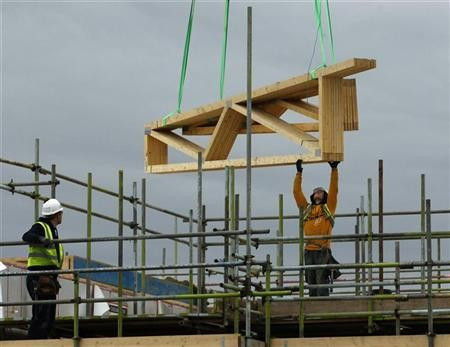Germany's Construction Sector Growth Eases and Causes Economic Recovery Concerns

Germany's construction sector continued to expand in July, but the pace of activity was modest, casting doubts over the economy's ability to recover from the financial crisis.
The Markit Germany Construction Purchasing Managers' Index (PMI) declined to 51.5 in July from 54.5 in June. A reading above 50 indicates an expansion in the sector.
The slower rate of growth in the sector was partly due to low rate of job creation and a downturn in new orders, according to Markit.
Meanwhile, construction groups increased their level of purchasing activity, resulting in lengthier supplier lead times, while also placing upward pressure on purchase prices during the month.
"A third straight monthly rise in total construction activity in July was yet more positive news for the German economy, which also saw expansions in both manufacturing output and services activity over the month," Phil Smith, economist at Markit said in a statement.
"A sharper decrease in new orders added further doubts to the sustainability of the current upturn. That said, businesses weren't discouraged from raising both employment and purchasing activity, the latter of which increased to the greatest extent since March 2012."
The weak data comes after the headline PMI rose to a 15-month high in June on the back of a broad-based growth in the sector.
Activity Centred on Commercial Projects
The growth in the sector was confined to commercial projects during the month.
Work in the commercial building area rose solidly in June, but this was partly offset by modest declines in both housing activity and civil engineering work, Markit said.
Intakes of new orders declined at the sharpest pace since April due to weaker demand and caution among clients regarding new projects.
Staffing levels in the sector continued to rise but at slower rate than in the previous survey period.
Increased purchasing activity raised input costs in July, lifting the inflation rate to the highest in five months.
Less Optimistic
Construction companies were less confident about their future performance, according to July data.
"Although still well above the historical series trend, sentiment dipped back into negative territory for the first time in six months, indicating that firms are generally downbeat about the prospect of activity rising in the coming year," Markit said.
The largest economy in Europe posted an expansion in business activity in July, with output growth in manufacturing and services sectors accelerating to a five-month high, according to separate Markit data released on 5 July.
The Final Germany Composite Output Index rose to 52.1 in July from 50.4 in June, as services sector expanded further to 51.3 from 50.4.
The significant growth in the country has helped the Eurozone to record an expansion in business activity for the first time in 18 months.
© Copyright IBTimes 2025. All rights reserved.






















